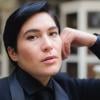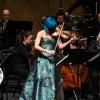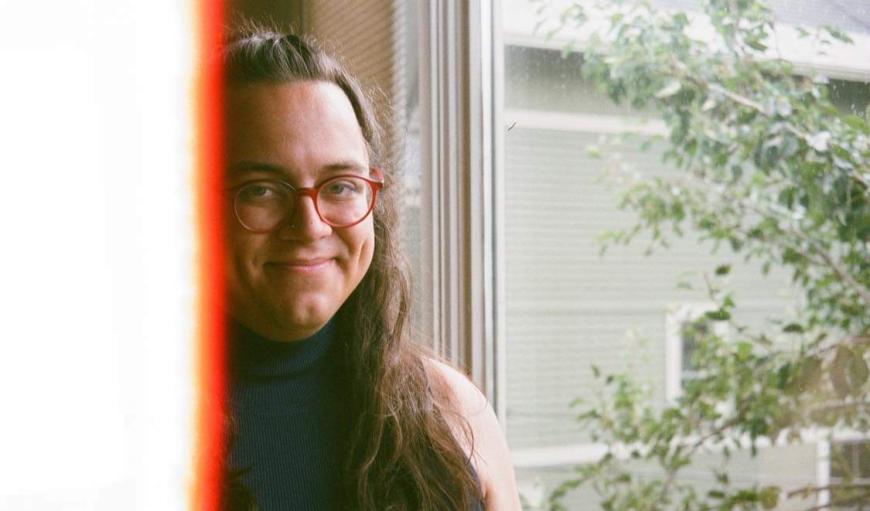
Composer inti figgis-vizueta (who spells her name lowercase) is already, at age 30, a high-profile figure in new music. Her work has been heard quite a bit in the Bay Area and Los Angeles, with commissions from the Kronos Quartet, Ensemble for These Times, Santa Barbara’s Music Academy, and the Los Angeles Philharmonic and cellist Jay Campbell.
There is a wonderful fluidity in all aspects of her work, which draws inspiration from poetry, archeology, her Irish and Indigenous Andean heritage, the multiplicity of the queer and trans experience, and her youth in the punk DIY scene in Washington, D.C. She describes herself and her work as “outward-facing” — always centering the influence of her community and environmental surroundings. All of this is reflected in the techniques of indeterminacy and group improvisation she has been using in her compositions for most of her career.
Recently, figgis-vizueta was tapped by Los Angeles Chamber Orchestra to curate a concert program titled “CURRENT: [inti]mate,” which will be performed at the Museum of Latin American Art in Long Beach on Jan. 20 and at the Los Angeles LGBT Center on Jan. 21. Drawing from her community and her heritage, she has assembled a show featuring works by Pulitzer Prize-winner Tania León, Angélica Negrón, Camilo Gonzalez-Sol, Marcos Balter, and folklorist Violeta Parra. In addition, figgis-vizueta will be premiering her own string quartet Other Worlds alongside the premiere of composer Carolina Heredia’s arrangement of Parra’s Anticueca No. 4.
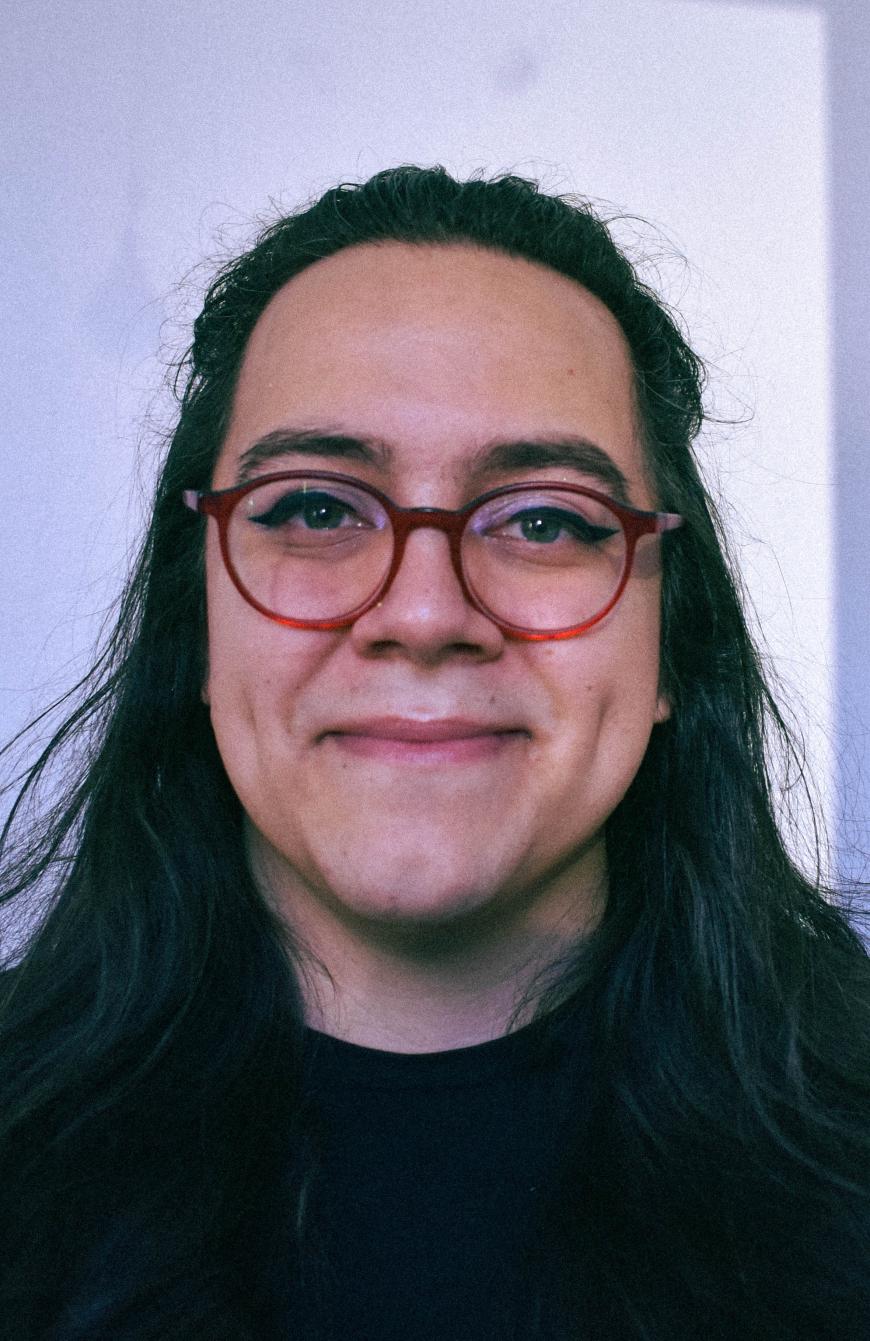
Ahead of the LACO performances, figgis-vizueta spoke with SF Classical Voice about her process, considerations, and hopes surrounding this program, diving into the many connections she feels across the works and the people she holds near and dear.
In looking at the lineup for this concert, it seems like this could have been either a kid-in-a-candy-shop sort of experience — just putting all of your favorite things together — or a more conceptually rigorous process — or maybe a mixture of both. Where did you land in this case?
Yeah, it was a kid-in-a-candy-shop [experience]. And then I have all the grand-candies, [pieces] that had affected my taste buds. [Laughs.] I don’t know, however that metaphor works.
I think my approach definitely goes back and forth. I really like [and] enjoy, you know, thinking about the intersection of modern and contemporary composition with this folkloric study that a lot of Latin American composers in particular [pursue]. It’s really in our sphere of thinking because of how European influence comes into the way in which we talk about and even conceive or analyze our own music — as well as the cultural friction between Indigenous music and folk music and European music.
It felt like there were a lot of through lines that could just come up simply from who was on the program and even the place [the pieces came from] in [the composers’] own lives. Like, the piece by Marcos is very old. It’s [more] reminiscent of his days at Northwestern [University] than what he’s been doing in the last five or 10 years — very whispery, timbre-y, in-the-air kind of stuff. Whereas Angélica’s [piece] was written during the pandemic and is about grounding in place and memory, which we weren’t able to access at that moment. I think [the through lines in the program are] all because I know this stuff, because they’re in my community. I studied with both [Balter and Negrón], and they’re both close friends. There is a way in which there’s a conceptual framework [to the program], but I think it’s [the result] of just the knowledge of my community.
That web of people and pieces is in you because of how you interact with music and your community.
Totally, yeah. And I’m so excited because [this concert is] not something that I feel like would come together except for this particular circumstance.
But at the same time, I feel like acknowledging the limitations of an identity-based thing is a necessary point to moving beyond a conversation that centers something so surface. It’s deep in some ways, but at the same time, I put this program together because I think the pieces speak to each other really beautifully. And do I necessarily think that it’s, like, the rhythms of Latinidad [a term that attempts to define the attributes shared by the various cultures of Latin American]? Maybe, a little bit. … With the composers involved, I feel like a lot of us have a complex engagement with Latinidad, especially as almost all of us live in the U.S. Part of it is that we all are concerned with heritage or with our self-perception and the perception of others of the kind of music we’re “supposed” to make.
How would you like to see the way that new music is presented evolve and how would you like to be involved in that? What would be your ideal performance?
I started my broader engagement with the field by working with [the online music archive] Score Follower, and I was kind of like their ears on the ground in New York for a year or two. I was going to shows and trying to track down pieces, and I had a big thing about trying to diversify the aesthetic that I was seeing on the channel because, of course, it was extremely modernist — you know, notation-heavy stuff. So, I was pretty happy to start bringing in folks like Nina Shekhar and Ted Hearne. I was always more interested in paying attention to who was around me and who I saw being platformed or not versus trying to achieve some torchbearing role.
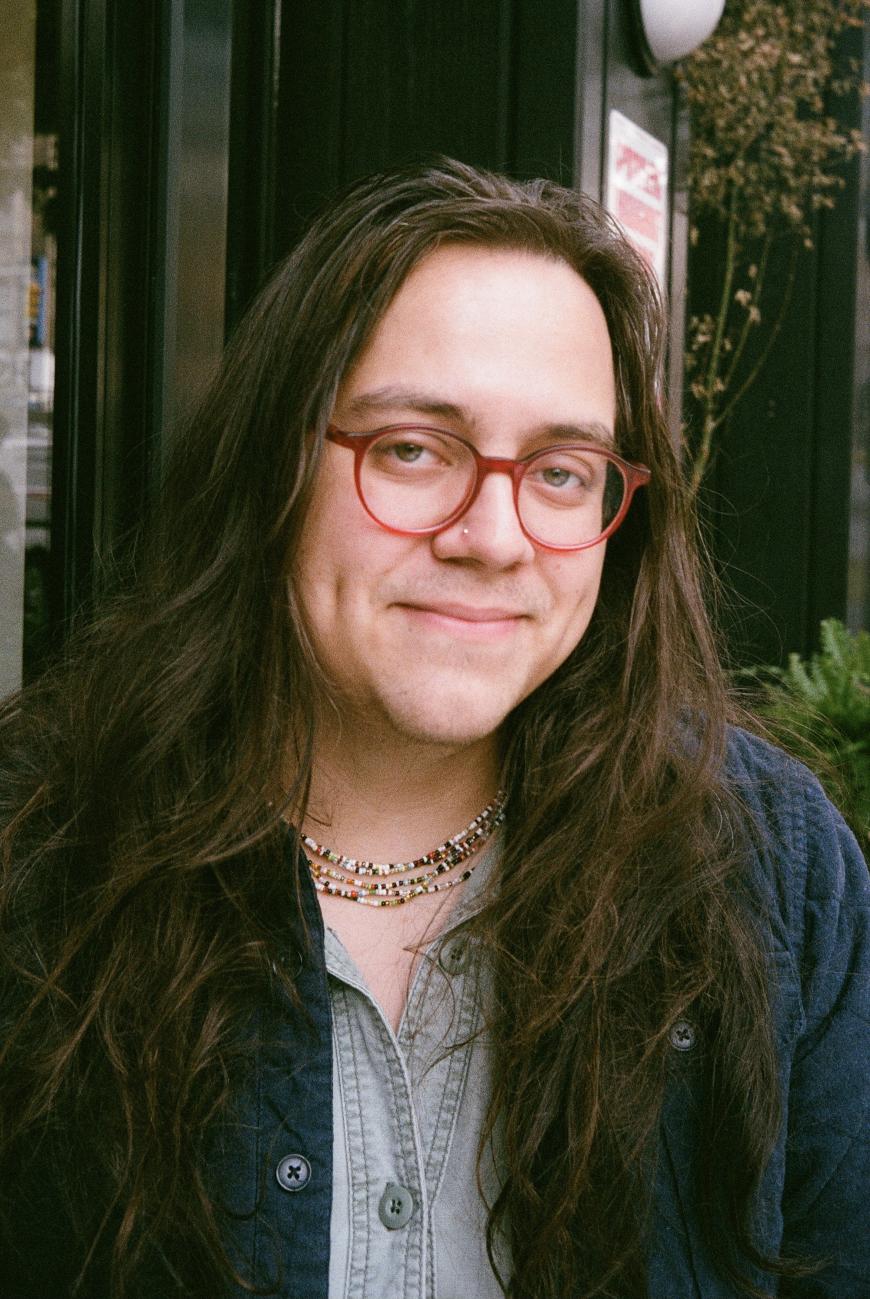
But I’m interested in a world where [the LACO concert] actually just happens at MOLAA, it happens at the LGBT Center, and it happens that most of the people are Latinx [a gender-neutral term for people of Latin American descent] and/or queer. I’m interested [in a scene] where those voices come up in their own context so that we’re able to exist and tell [our] own stories and not have it be just about one aspect of [our identities].
[I’ve been] trying to be truthful with myself, [asking] how can [this concert] reverberate? And I know why this program is important. Because I thought I could be a composer when I heard Marcos Balter’s Meet the Composer episode [with New York classical radio station WQXR] when I was a [college] freshman. It was literally the ability to self-imagine, and it was because of him.
[Seeing] people who we feel we can relate to, who [seem to] inhabit some part of ourselves — it breaks open the gates of imagination. And I feel that from the young people who I work with or who message me and say, “I’m a young trans composer, and your work has made me feel like I can do it.” And I’m like, “That’s literally the point!”
In my own life, being able to imagine a career future has been connected to the trans experience. Being able to imagine a future in which you can live so much more authentically is very much tied to transitioning. Do you feel a connection between these aspects of your life and work?
Absolutely. My artistic practice has always had to reflect that for me. When I was in Boston, one light for me was my work with an LGBTQ choir, which included people who were transitioning and folks with no experience reading notation, from different genres of singing. So, a lot of my early process-based aleatory music was oriented toward giving a flexibility [to] transitioning voices.
[My focus on] that imagining, it comes from transness, but it also, you know … I don’t ever want to try and chop up what’s trans versus what’s Indigenous versus what’s D.C. The intensity of the multiplicity of my own identity and experience makes it so that I work really hard not to cut those things up or to isolate them. But [transness] is indicative of [my] approach to the work, [which is] trying to make music for people that is comfortable for their bodies. And that’s like the trans-est thing in the world!
There’s something about this way of thoughtfully touching. Because in some ways, when you give directions [in a] composition, you are touching people’s bodies, just without direct feedback. You’re affecting them. And I think how queer people touch other queer people’s bodies is different.
Tania León described [the Afro-Cuban musical term] tumbao as “the way you walk” but also that it’s about your own personal way you hold and move your body; it’s really like your internal rhythm. But then we also hear [composer Alvin] Lucier say that every single body has a melody that wishes to be heard. And I’m like, “All these things are connected. Come on!” But are they only connected in my brain? To me, Tania’s description of tumbao, my ideas of no notation and aleatory music as a way of giving freedom to one’s body and creating sound, [and] Lucier’s [ideas that] by process we’re able to unlock the melody of the body or the soul — his is much less materialized in the body, more conceptualized — but to me, that’s a beautiful continuum [of concepts].
But I don’t know if all of them are “trans.” I guess I’m resisting this reducibility. Because to me, it’s beautifully complex, but that complexity doesn’t [become] incoherence. We have people [on this concert] who have different approaches to how we think about bodies, and that is inside the works. It’s not being pasted on, like, “This is a concert about body.” No, it’s like, “This is a queer Latinx [concert]” — and that is the surface level, the most immediate way of grabbing attention and explaining. But the core of it is this other thing.


